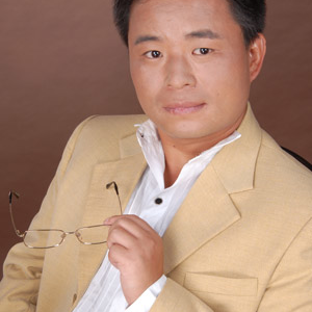Murong Xuecun is a leading independent writer living in China. He won the 2010 People’s Literature Prize for his most recent book The Missing Ingredient but was not allowed to deliver a speech at the ceremony because he intended to criticise the censorship of Chinese writers.
From a debut novel that prompted authorities to convene a conference solely to critique it, to his more recent work as an investigative journalist, Xuecun discusses the challenges that face an ‘independent’ writer in modern China.
Chaired by Jenny Niven.
Featuring

Murong Xuecun
Murong Xuecun is one of contemporary China’s most celebrated authors and the winner of the 2010 People’s Literature Prize for his most recent book The Missing Ingredient.
Born in 1974 in China’s North East, Murong spent his childhood in Jilin province. In 1996 he graduated from China University of Political Science and Law in Beijing. Afterwards he worked as an HR manager for a cosmetics company. He started to write in 2001. In 2002. when his novel Leave Me Alone: A novel of Chengdu (published in China as Chengdu Please Forget Me Tonight) took China by storm, Murong gave up his job and devoted himself to writing full time.
Having declined membership of the China Writers’ Society, he is regarded as an ‘independent’ writer. In the past few years he has travelled around China, living in Chengdu, Shenzhen, Hangzhou, Hainan Island and Lhasa. He currently lives in Guangzhou where he runs an advertising company. His other four books include Heaven on the Left, Shenzhen on the Right, Countless People Die of Greed and, in October 2008, released Dancing Through Red Dust which has sold an estimated 100,000 copies in China.
On the night he was awarded the 2010 People’s Literature Prize, Murong intended to give a speech criticising China’s censorship of writers. The speech was to include the following: “The only reality is that we cannot speak reality. The only viewpoint is that we cannot have a viewpoint. We cannot criticise the system, cannot discuss things. Sometimes I can’t resist thinking: has the Cultural Revolution really finished?” Murong was prevented from delivering his speech.

Jenny Niven
Jenny Niven was the Wheeler Centre’s Associate Director. She is currently Portfolio Manager for Literature, Publishing and Languages at Creative Scotland.
Jenny came to Australia in early 2010 after 6 years in Beijing, where she directed the events program at The Bookworm, China’s foremost English-language literary events venue. She was director and co-founder of The Bookworm International Literary Festival, which runs annually across the three Chinese cities of Beijing, Chengdu and Suzhou.
Jenny was books editor at Time Out Beijing from 2006 to 2008. She contributed to Beijing: Portrait of a City, published by Odyssey in March 2008, as well as numerous travel guides. She joined the Wheeler Centre staff after holding the position of Program Manager at the Melbourne Writers Festival.
Jenny is originally from Scotland where, prior to leaving in 2004, she gained an undergraduate degree in Scottish Literature and Film and a masters degree in journalism. She was an arts researcher for Hopscotch Films and BBC Scotland and spent April and May 08 and 09 working on the PEN World Voices Festival in New York. In case it isn’t already crystal clear, she likes books and travel.
